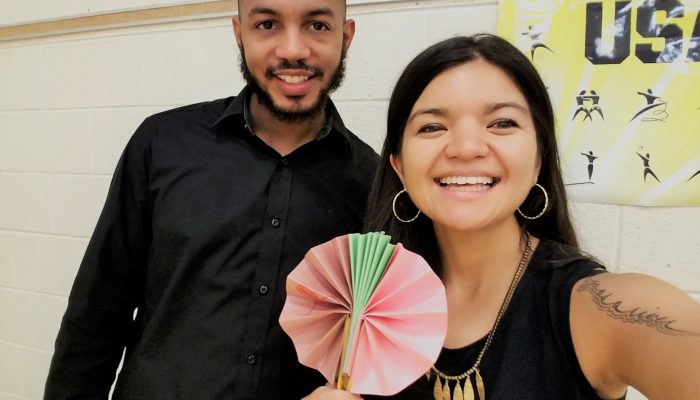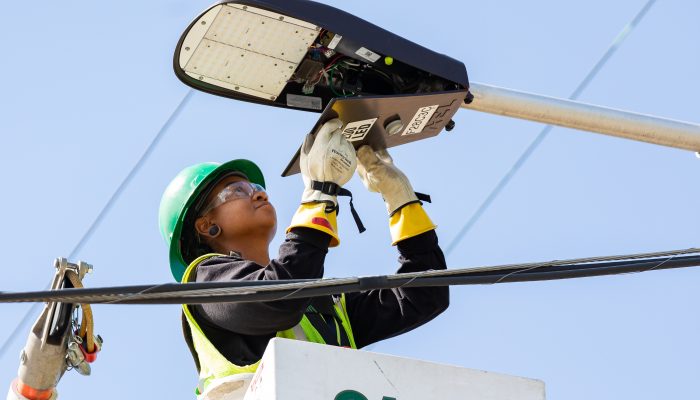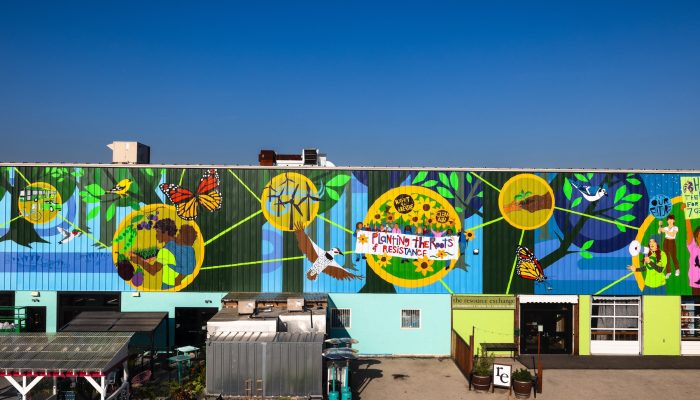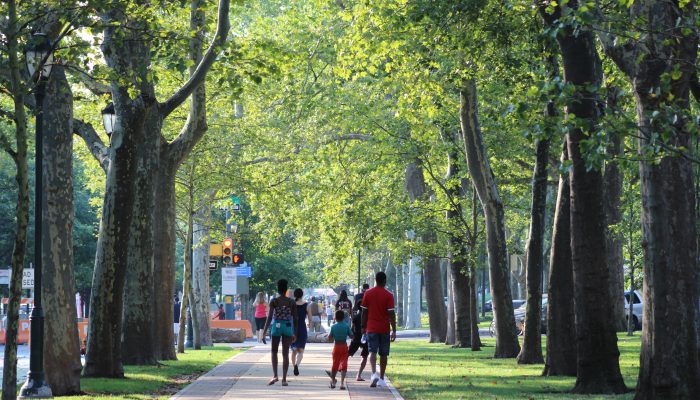Over the summer, the Office of Sustainability has worked in collaboration with Hunting Park residents and organizations to understand and address the issue of extreme heat. Read on to learn more about Sophie Sarkar, the lead organizer for our Beat the Heat pilot project in Hunting Park!
Q: How did you become interested in the environment and sustainability?
A: I spent the first 11 years of my life in a rural, predominantly white town in Eastern Washington state. While it was a beautiful landscape in which to grow up—surrounded by the rolling wheat hills of the Palouse—my family had very limited access to our culture’s food. Living in South Philly now, it is hard to fathom growing up in a place without an Asian grocery. My dad eventually figured out how to satisfy his craving for Bengali food by taking my sister and I fishing every weekend in the summer. After we caught a bounty of rainbow trout or blue gills, we were taught how to traditionally prepare the fish with mustard seeds and turmeric. My dad would also force us to eat the fish eyes and brains so that we would “do well in school”. Experiences like this helped me see my relationship to my natural environment as being deeply intertwined with my culture.
Q: Why is sustainability an important goal for Philadelphia to work towards?
A: Climate change is happening. We can see it, feel it, and even hear it every time there is a flash flood warning or heat health emergency. As seen in our work in Hunting Park, not every neighborhood is impacted in the same way. Some communities face a greater burden. If Philadelphia is like a body, we must take care of all its different parts. So, it’s important that our efforts are not focused in one section of the city or around one specific issue. I think of sustainability as a vehicle to improve quality of life and to meaningfully include those who have been historically excluded.
Q: How is the environment connected to equity and social justice?
A: Feeling aware of and connected to our natural environment is part of healing. If we think back long enough we can see our connections to our natural environments more clearly. I think of equity as an approach to acknowledge and dismantle the policies, procedures, and programs that prevent communities from connecting with each other and their environment. In my career so far, I have seen these barriers manifest in many ways, from transportation infrastructure that has cut communities off from the Schuylkill River, to tree maintenance training that is only in English, to a School District policy that bans all water-based field trips.
I have also witnessed incredibly inspiring, resident-led movements to dismantle these barriers from the creation of the Mantua Greenway, to a bilingual Tree Tenders training, to a School Board fighting for swimming lessons. Each of these movements gets us closer to our vision for an environmentally and socially just Philadelphia.
Q: What Greenworks Vision are you most excited about?
A: I am most excited about engagement. The mainstream environmental movement does not adequately reflect the grassroots movements which are so often led by people of color. Nor does it reflect the Native people who have stewarded our land and waters for generations. It’s important to ask yourself, who is shaping climate policy in the World, in the US, and in Philadelphia? Working with communities across difference, my views and perspectives are constantly shifting and expanding. I think no policy will be successful without these community members directly at the table.
Q: How does your work bring Philadelphia towards a more sustainable future?
A: Our hope is that our work through the Heat Equity pilot will support residents in Hunting Park to develop and implement solutions that will help them cope with the hotter summers to come. By supporting one neighborhood that has and will continue to be disproportionately impacted by climate change, we hope to bring more awareness to the existing systems and barriers that maintain these inequities to move towards a more sustainable future for all Philadelphians.




